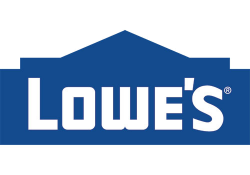
Note: This is general tax information, not advice. We always try to be accurate in the information we provide, but you should contact a certified tax accountant for assistance with your situation. This article does not cover all situations and nuances.

With tax season just around the corner, I figure a review of some of the home-based tax deductions and credits are in order. Up first, IRS tax treatment of the popular interest deduction for home equity loans and home equity lines of credit.
What are Home Equity Loans?
A home equity loan is a fixed term loan where a lump sum is borrowed at the outset of the loan and paid back according to some agreement (periodically, or in a balloon payment, for instace).
A home equity line of credit is an account that allows you to borrow money based on the equity of your home on demand. You can pay back and re-borrow the money over the life of the line.
For both of these loans, the term equity usually implies the loan was taken out after the purchase of the home (using the home’s equity as collateral). However, this isn’t always the case. It was not uncommon between 1999 and 2005 to see equity loans used as part of a purchase.
How Is Home Equity Interest Treated by the IRS?
In general, the IRS does not make a distinction between the deductibility of interest based on the form or name of a loan instrument.
Whether the debt is called a first mortgage, a second mortgage, a home equity loan, or a home equity line isn’t really important at all. What is important is the difference between what the IRS calls acquisition debt vs. equity debt.
Here’s what the IRS says (reference Pub 936):
Home equity loans and lines that are used to build, buy, or improve a qualified property are treated as acquisition debt. (This is the same type of debt as almost all first mortgages).
That means that the interest is fully deductible, so long as:
- The loan is actually secured by a qualified property. Most all primary residences in the U.S. are qualified properties.
- You itemize deductions on your 1040.
- Your mortgage balances are 1,000,000 or less ($500,000 or less if Married Filing Separately), or the loan was taken prior to 10/13/1987 (presumably when these laws were written).
- Several other limitations that probably don’t apply to most, but are referenced in the pub.
Home equity loans or lines (or in fact a first mortgage) used for something other than buying, building, or improving a qualified property is called equity debt.
In this case, additional restrictions apply, including:
- Interest is deductible on equity debt only up to the first $100,000 borrowed, and
- The total amount borrowed (when considering all debt on the home) doesn’t exceed the fair market value (FMV) of the home.
That means if your equity debt totals $150,000, you can only deduct the interest paid on the first $100,000 borrowed.
What Does this Mean for Underwater Equity Lines?
In the last 3 years, many people have found themselves underwater in their mortgage, meaning that the FMV of their homes is less than the total debt they are carrying.
According to IRS regulations, any equity debt that exceeds the FMV of a home is no longer deductible. This rule was originally designed to prevent borrowers from writing off interest which, while legally secured by their home, isn’t really secured by it because there’s no equity available.
As written, this provision stands to put many people with an equity line out of a tax deduction because their homes lost value, not because they took a loan that exceeded the appraised value of their home.
Be Careful with Loan Payments and Draws from an Equity Line
One thing to be careful with is how you pay and re-draw funds from an equity line that you are considering acquisition debt (because you used the line to purchase the house).
If you pay down the line and then redraw funds for another purpose, the funds you redraw can only be considered acquisition debt if you use them to buy, build, or improve the home.
What do you think? What’s your favorite home-related tax deduction?
(photo credit: alan_cleaver2000)







In today’s housing market, it’s my opinion that people need to be very cautious with the use of a home equity line of credit. I’ve heard of many people using these loans to finance a kid’s college education. The concern: What if you end up in a circumstance where you can’t make the payments and the student can’t find a job? You essentially are at risk of losing your home, and lowering your credit rating.
What is it possible you do as soon as mortgage
broker lies to you with your refinance?